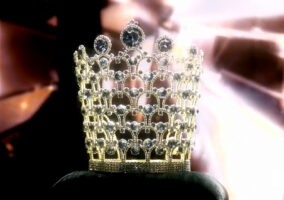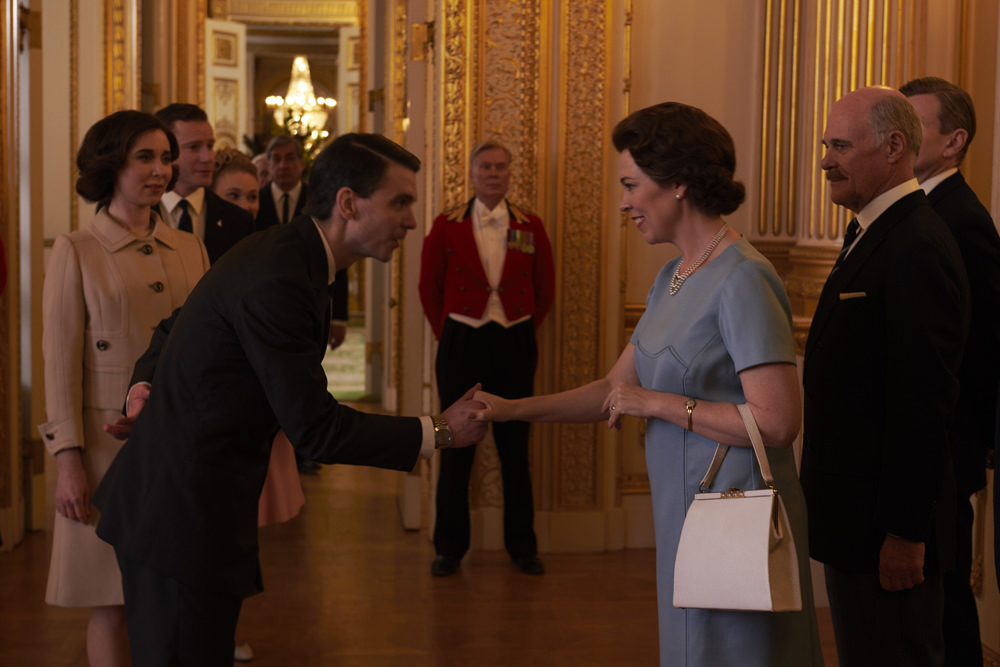
Darlings, sweeties and cabbages, we’re back! After a two-day audiobook recording session, a four-day holiday and an epic bout of carpal tunnel syndrome, we’re back in Buckingham Palace and ready to give these Windsors a good piece of our minds. Let’s start wrapping this thing up, shall we?
Here follows our thoughts on “Moondust,” the episode in which Philip has a mid-life crisis, acts like a total dick to everyone around him, repeatedly badmouths some of the most widely recognized heroic figures of the 20th Century, and then finds religion:
Ugh. Can we not?
We’ve been fairly complimentary of Peter Morgan’s ability to tie the emotional journey of the royal family to the historical events surrounding them, but “Prince Philip is depressed because of the moon landing” sounds absurd just on the face of it. We spent an hour on this but skipped Princess Anne’s kidnapping?
Menzies is as great as he always is, but there’s just not enough story here, and the attempts to graft some personal meaning onto the moon landing of all things, felt strained past the point of credibility. The scene of him sitting with a paper on his lap, eager to ask the questions he’s written down struck us as absurd and a little demeaning to the man – and we say that as people who don’t find the real person all that likable or admirable. We realize that people have a tendency to be unaware of how they come across and that Philip in particular isn’t what anyone would call an introspective man, but we found it unlikely that he would sit in front of three Americans – all younger than him and without any social standing – and nervously try to read questions off a piece of paper. It just didn’t scan or feel consistent with any version of the man the show has depicted so far. Granted, the scenes of him being a total asshole to a roomful of burnt-out old priests felt exactly like the Philip this show has always depicted.
As we’ve also noted several times, Morgan likes to critique the royal family and then give them some last-minute chance to redeem themselves, often in ways that run counter to their depiction. We’ve taken to calling it “gilding the Lilibet,” since the Queen is the most common recipient of this treatment. But even for this show, the ending of this episode, in which Philip’s lifelong commitment to religious meditation and discussion is presented as evidence of his growth and warmth, after 50+ minutes of him acting like a callous jerk, is well past the border of hagiography. This isn’t meant to demean Philip’s real-life devotion, about which we claim no knowledge or foresight. But after almost an hour of “He’s getting old and he has to talk to denture manufacturers and tour wool factories and the combination of those two things, PLUS THE MOON LANDING is why he’s such an asshole to people but it’s okay because religion” sure feels pointless to us. We think the aging of Elizabeth and Philip has to be a central theme as the show progresses, so we don’t mind the focus here, but all poor Betty got on the matter was one short scene in which she got humiliated by her courtiers and referred to her 37-year-old self as an “old bat.”
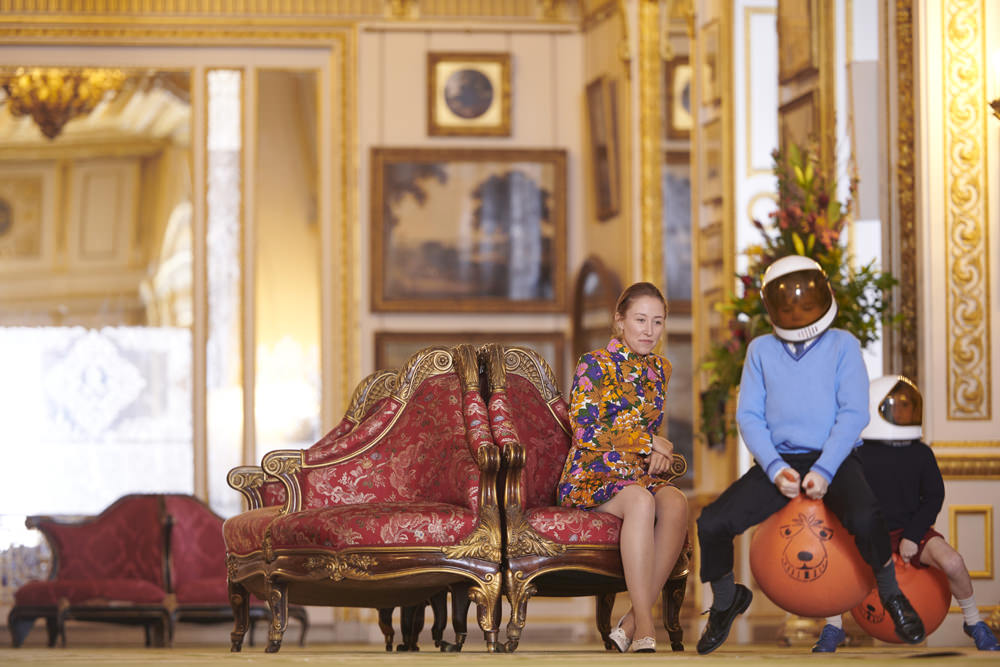
Given how this season skipped over major chunks of Princess Anne’s life (her time in the Olympic games, her kidnapping, her wedding) for some completely bizarre reason, spending another hour watching Philip be a spoiled, self-centered asshole – after so much of the first two seasons was turned over to such stories and the finale of season two was all about how he grew past his restlessness – feels like an enormous waste of time to us. Not to mention a bit redundant since the episode before this one and the episode after it are all about Charles putting on his “poor little prince” act. If we’re going to sit through Philip being the same way, then the show missed a great opportunity to comment on how petulant the men in this matriarchal family tend to be. And it would be great for the show if for once, they’d let a criticism of one of the family members actually stick without a redemption scene.
As for “The Dangling Man,” we’re afraid our most notable reaction was:
“Is that Geraldine Chaplin?”
“Ohmigod, it IS.”
[in creepy unison] “SO PERFECT!!!!!”
Which isn’t to say we didn’t enjoy this episode. It’s probably one of our favorites of the season. The second we realized who that husky-voiced blonde playing silly games with her boyfriend was, we literally clapped. It’s probably the only time in our lives we’ll ever clap for the current Duchess of Cornwall. And any episode that allows Princess Anne the opportunity to spit out “I hate it when men apologize. It isn’t honorable or chivalrous, it’s wet,” is an episode we’re pretty much duty-bound to love.
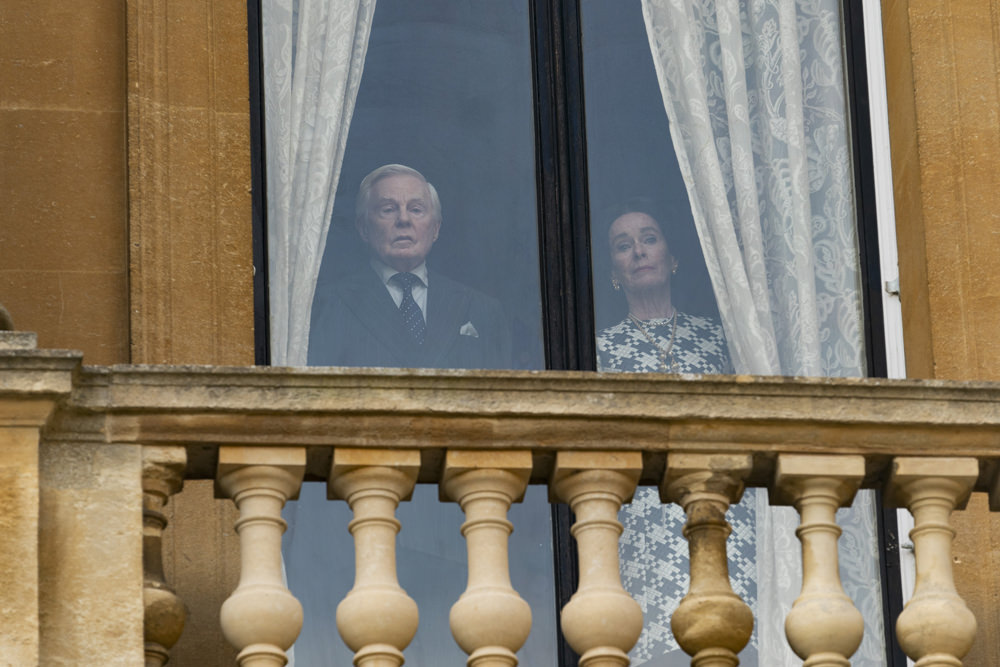
We’ve noted that, given how Charles has been depicted so far, it seems likely that Morgan’s version of his marriage to Diana is not going to cast him as the villain of the story, which is likely to piss off a lot of Dianaphiles. This episode confirmed that assumption as it took a clearly low view of Camilla, making her seem like a game-player and somewhat dim (“Who’s Saul Bellow? Is he a prince?”). And to underline that point in one of those bits of dialogue that should come with alarm bells and the word FORESHADOWING across the screen, Ann smartly and coldly tells Charles to remember that they get to play games with people like Camilla and Andrew Parker-Bowles; not the other way around. The implication being that Camilla manipulated Charles from the beginning. We have no dog in this hunt (we truly don’t have much of an opinion about the real Camilla either way except to note that time has proven there’s a real love affair there), but we think it’s worth remembering how often and how much Peter Morgan gilds the Lilibet, so to speak. Given his two appearances so far, we predict Charles will be portrayed as a whiny man battered by dangerous and threatening outside forces – all of whom (Mummy, Diana, Camilla) happen to be female. Ooof. Recapping next season’s gonna be fun.
Still, we think it’s smart and makes for fantastic drama to situate Elizabeth between her son and her uncle, about whom she has extremely complicated feelings. Charles’ relationship with the man who nearly destroyed the monarchy and, in Elizabeth’s eyes, killed her beloved father works incredibly well from a dramatic perspective, allowing the same themes that have dominated the show since the first episode (“The crown wins. The crown always wins.”) to play out in the new generation. Like Uncle David and Aunt Margaret, Charles is about to learn the hard way that having one’s own ideas about the monarchy – or having any ideas at all – is a dangerous mistake that will cause him tremendous heartache and force him to choose between the crown and his true love.
Note how Elizabeth’s scene with the Duke of Windsor perfectly mirrors her last scene with Winston Churchill in the first episode of this season – with one glaring difference. In both scenes, her aged mentor figure is listening to her pay him some uncharacteristically heartfelt compliments when he falls asleep in the middle of it. In both scenes, she leans in to kiss the sleeping figure gently, heavy with the knowledge that she probably won’t see him again. But in this scene, she pulls away before doing so. Winston Churchill earned her affection – and a royal kiss. She just can’t bring herself to give the same to Uncle David. That’s the man her son identifies with most; the man she can’t bring herself to show any affection to because she’s still so angry and disappointed in him. Like we said, true to the real people or not, that’s primo drama.
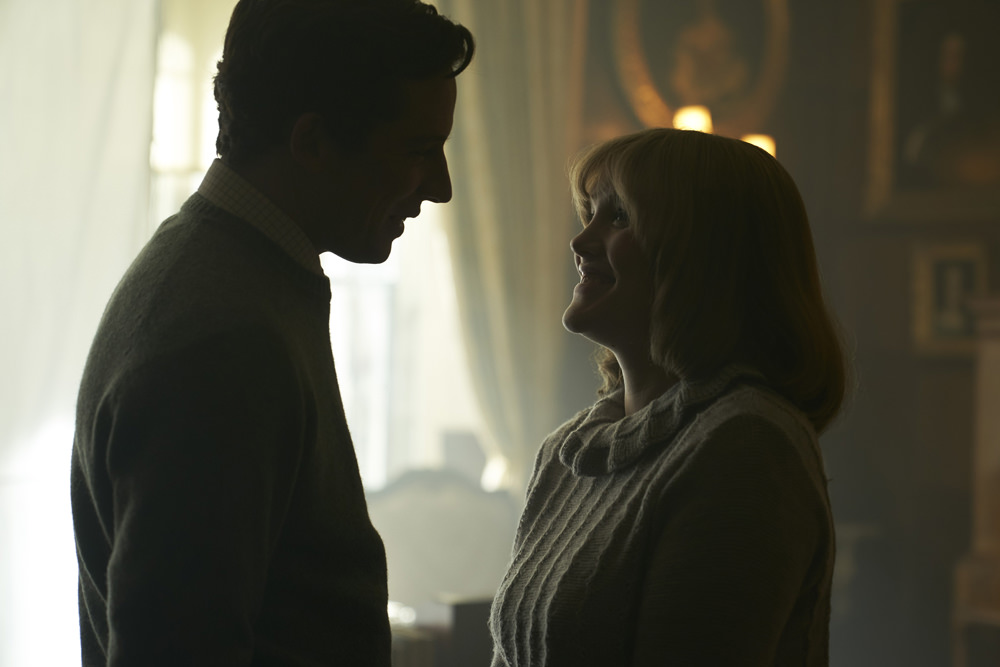
Still, much as we adore Derek Jacobi, his Duke of Windsor, while a valid interpretation of the man in many ways, was simply too jarring a change from Alex Jennings’ droll, arch, and slightly ridiculous Duke of Windsor. Jacobi was too fussy, fidgety and obsequious for us to connect him effectively to Jennings’ resentful, spoiled and lazy take on the character. The script may have been an attempt to explain this character turn as a consequence of age, his long exile, and the fear of death, but we think we would’ve appreciated a bit more of an attempt to connect the two portrayals. Nearly everyone else in this new cast has done so. “The crown always finds its way to the right head,” he told his niece. That is an almost hilariously delusional reading of history with literally countless examples to refute the Duke’s point, but at the end of your life, you’ll say some delusional things, we suppose. If for no other reason than an attempt to make it all make sense somehow.
And yes, Geraldine Chaplin was perfect. Not just because she looked so much like Wallis, but because the dryness and suspicion of the character, as well as her tendency to be a bit of a troublemaker, was exquisitely portrayed in her few scenes. She nearly rubbed Elizabeth’s face in that red King’s box and the accompanying smirk could’ve withered a weed.
The Fashion Awards 2019: Shailene Woodley in Moncler 1 Pierpaolo Piccioli Next Post:
Marvel Studios’ “Black Widow” Official Trailer
Please review our Community Guidelines before posting a comment. Thank you!

